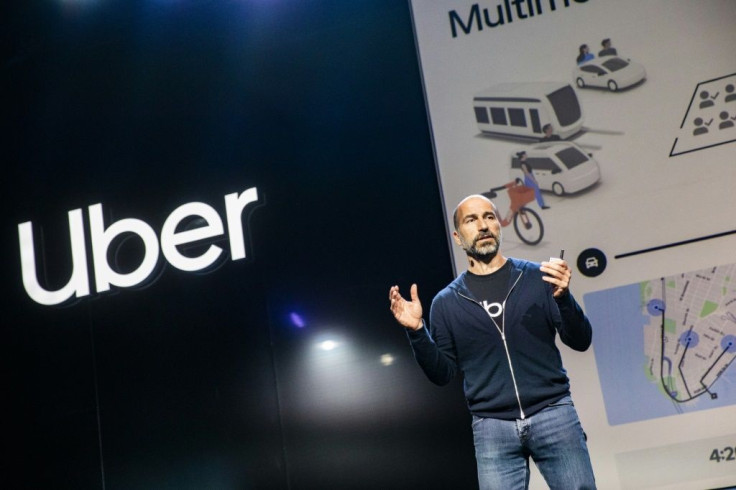Uber Stock Drops As Quarterly Loss Hits $1.2B, Will Be Profitable By 2021

Investors in Uber Technologies Inc. will have to wait until at least 2021 -- at the earliest -- for their investments in this loss-making firm to pay-off. This after the company revealed a third quarter loss exceeding $1 billion but positive results on other key operating metrics.
News of another massive loss sent Uber's shares tumbling to $29.49, down 5.12 percent, in after hours trading. The stock opened at $31.45 and ended regular trading at $31.08. Uber's market cap on Monday stood at $52.8 billion.
CEO Dara Khosrowshahi said efficiency and profitability are now Uber's priorities. He noted rapid growth was the company's focus in the past.
“We know there is the expectation of profitability, and we expect to deliver for 2021,” said Khosrowshahi in an interview with CNBC.
Uber has set its sights on an adjusted EBITDA (earnings before interest, tax, depreciation, and amortization) profitability in 2021. Khosrowshahi said that to reach this lofty goal, Uber will have to "drive lower rates based on the best technology out there rather than driving the growth through discounting."
He also said Uber will have to make other trade-offs to attain profitability. He emphasized Uber will move away from steep discounts on shared rides to focus more resources on new features that let users save by waiting less longer and avoid walking to a pickup location.
“It was absolutely the right set of priorities for the time,” he said. “Our priorities are changing.”
Uber previously said it will start turning a profit within three to four years.
“I would be very disappointed if Uber isn’t profitable in three years,” according to Khosrowshahi in an interview at CNBC last summer. “The investors are expecting profitability going forward.
"I think our rides business is the most mature business, so it is going to enter in an area of profitability sooner than our other businesses. With Eats, we’re looking to get into number one or two position in every market that we compete with. And I think our investors expect us to deliver.”
In its Q3 earning report Monday, Uber revealed a net loss of $1.2 billion on $3.8 billion in revenue over the four-month period ending September. Gross bookings rose to $16.5 billion, up 29 percent year-on-year. This metric refers to total customer payments to Uber before payments to drivers and other fees or discounts.
Analysts noted that the United States and Canada remain Uber’s largest growth market. Combined revenue growth in both these countries hit 39 percent compared to the third quarter of 2018. They said Uber's rewards program for riders now has 20 million members, which will be a significant revenue source once Uber allows the program's participants to redeem points with Uber Eats, its food delivery service.
Uber raised guidance for the full-year 2019. It now expects adjusted net revenue to improve in Q4 and also boosted its guidance by $250 million. Uber foresees an adjusted EBITDA loss of $2.8 billion to $2.9 billion for 2019.
The other key numbers in Uber's Q3 report:
Here are the key numbers:
- Loss per share: $0.68 vs. $0.81 expected, according to Refinitiv;
- Revenue: $3.81 billion vs. $3.69 billion expected, according to Refinitiv
- Q3 net loss of $1.16 billion vs. $986 million loss in Q3 2018. The loss includes $401 million in stock-based compensation.
© Copyright IBTimes 2024. All rights reserved.





















